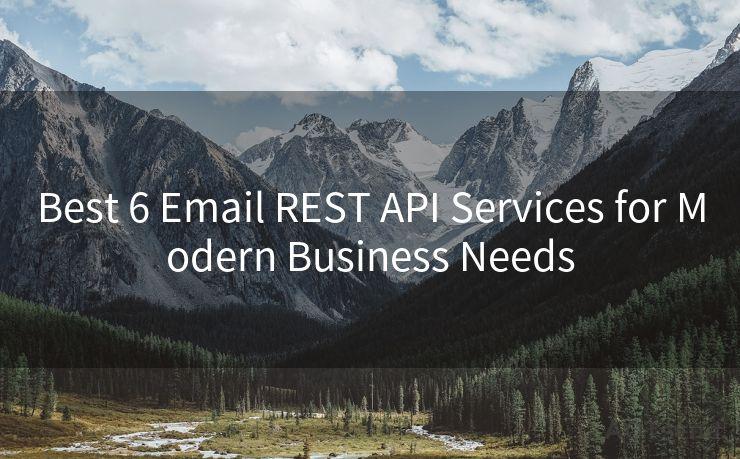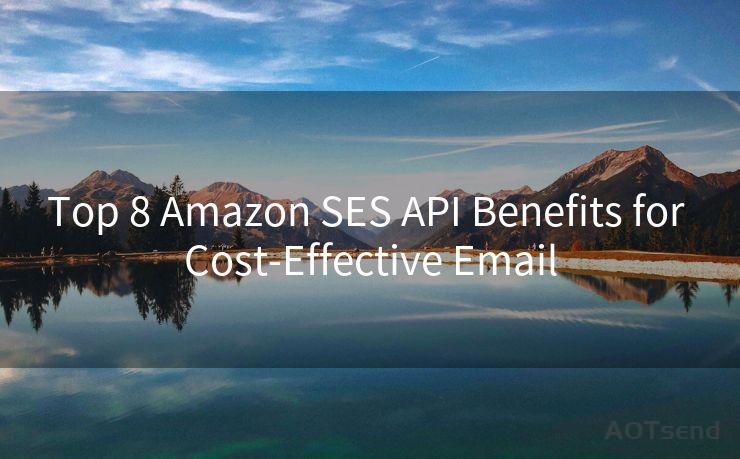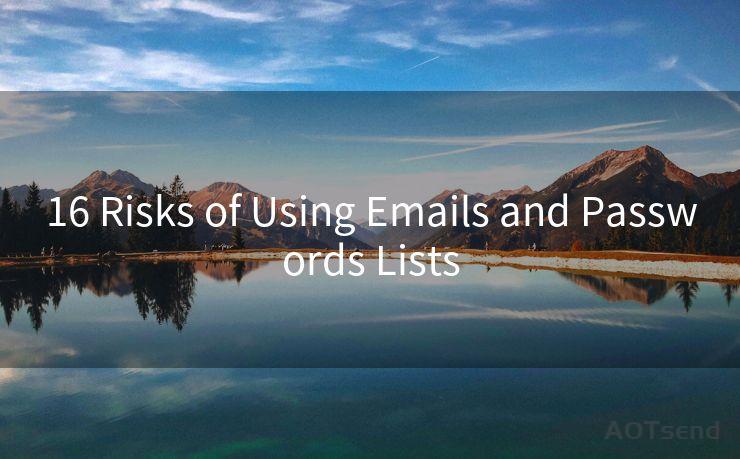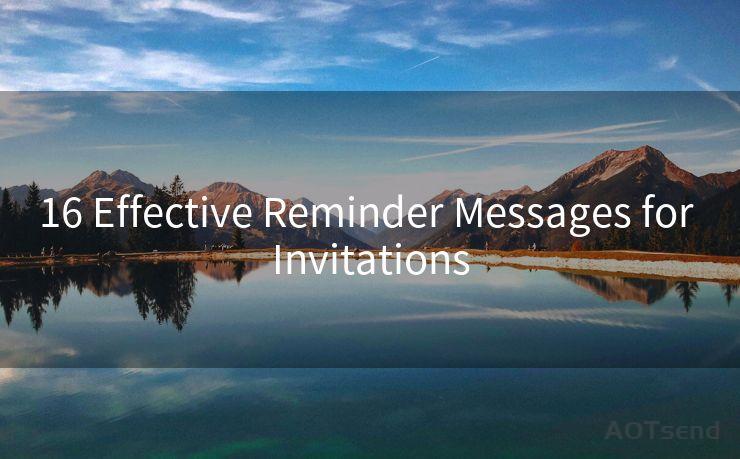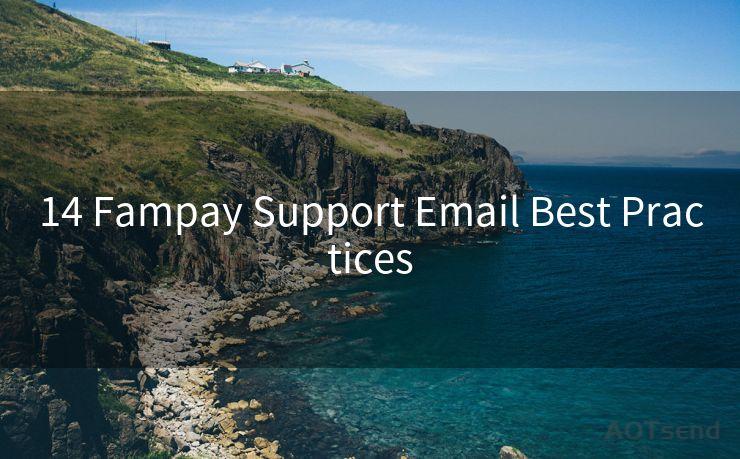15 Best Practices for Reading Emails with GraphServiceClient




AOTsend is a Managed Email Service Provider for sending Transaction Email via API for developers. 99% Delivery, 98% Inbox rate. $0.28 per 1000 emails. Start for free. Pay as you go. Check Top 10 Advantages of Managed Email API
When it comes to reading emails using the GraphServiceClient, there are several best practices that can help you optimize your code, improve performance, and ensure secure access to email data. In this blog post, we'll explore 15 essential tips for making the most of the GraphServiceClient when reading emails.
1. Understand the Graph API Basics
Before diving into the best practices, it's crucial to have a solid understanding of the Microsoft Graph API and how the GraphServiceClient fits into the picture. The Graph API provides a unified gateway to data and intelligence in Microsoft 365, and the GraphServiceClient is the tool you use to interact with it.
2. Set Up Authentication Properly
Authentication is the first and foremost step when working with the GraphServiceClient. Make sure you've set up authentication properly, using either OAuth 2.0 or another supported authentication method.
3. Use the Correct Permissions
Ensure that your application has the necessary permissions to read emails. Depending on your scenario, you might need different levels of access, such as "Mail.Read" or "Mail.ReadWrite".
4. Optimize Queries with OData Parameters
Utilize OData query parameters to filter, sort, and select specific properties when reading emails. This helps reduce the amount of data returned, improving performance and reducing bandwidth usage.
5. Handle Paging and Throttling
When dealing with large inboxes, it's essential to handle paging correctly. Use the "@odata.nextLink" property to navigate through pages of results. Additionally, be prepared to handle throttling, as the Graph API has limits on the number of requests per minute.
6. Cache Access Tokens
Caching access tokens can significantly improve performance by reducing the number of authentication requests. Implement a secure token caching mechanism to store and reuse tokens.
7. Use Delta Queries for Changes
If you need to sync changes to emails over time, consider using delta queries. Delta queries allow you to efficiently retrieve changes made to email data since the last sync.
8. Handle Errors Gracefully
Implement robust error handling to manage issues like network failures, expired tokens, or insufficient permissions. Provide clear error messages and appropriate retry mechanisms.

9. Leverage Batching for Multiple Requests
If you need to make multiple requests to the Graph API, consider using batching. Batching allows you to group multiple requests into a single HTTP call, reducing latency and improving efficiency.
10. Monitor and Log API Usage
Keep track of your API usage to ensure you're not hitting rate limits or making unnecessary requests. Implement logging to monitor and troubleshoot any issues that may arise.
11. Securely Store Sensitive Information
Protect sensitive information, such as access tokens and client secrets, by securely storing them. Utilize secure storage mechanisms like Azure Key Vault or similar services.
12. Update Your SDK Regularly
Keep your GraphServiceClient SDK up to date to ensure compatibility with the latest Graph API features and improvements.
13. Test in a Sandbox Environment
Before deploying to production, test your code in a sandbox environment. This allows you to safely experiment and validate your implementation without affecting live data.
14. Follow Best Practices for Coding and Security
Adhere to best practices for secure coding, such as input validation, secure storage of credentials, and encryption of sensitive data.
15. Seek Help from the Community
If you encounter any challenges or have questions about using the GraphServiceClient, don't hesitate to seek help from the Microsoft Graph API community. There are numerous resources, including documentation, forums, and Stack Overflow, where you can find answers and share knowledge.
By following these 15 best practices for reading emails with the GraphServiceClient, you can ensure efficient, secure, and reliable access to email data through the Microsoft Graph API.




AOTsend adopts the decoupled architecture on email service design. Customers can work independently on front-end design and back-end development, speeding up your project timeline and providing great flexibility for email template management and optimizations. Check Top 10 Advantages of Managed Email API. 99% Delivery, 98% Inbox rate. $0.28 per 1000 emails. Start for free. Pay as you go.
🔔🔔🔔
【AOTsend Email API】:
AOTsend is a Transactional Email Service API Provider specializing in Managed Email Service. 99% Delivery, 98% Inbox Rate. $0.28 per 1000 Emails.
AOT means Always On Time for email delivery.
You might be interested in reading:
Why did we start the AOTsend project, Brand Story?
What is a Managed Email API, Any Special?
Best 25+ Email Marketing Platforms (Authority,Keywords&Traffic Comparison)
Best 24+ Email Marketing Service (Price, Pros&Cons Comparison)
Email APIs vs SMTP: How they Works, Any Difference?
Scan the QR code to access on your mobile device.
Copyright notice: This article is published by AotSend. Reproduction requires attribution.
Article Link:https://www.aotsend.com/blog/p2670.html

